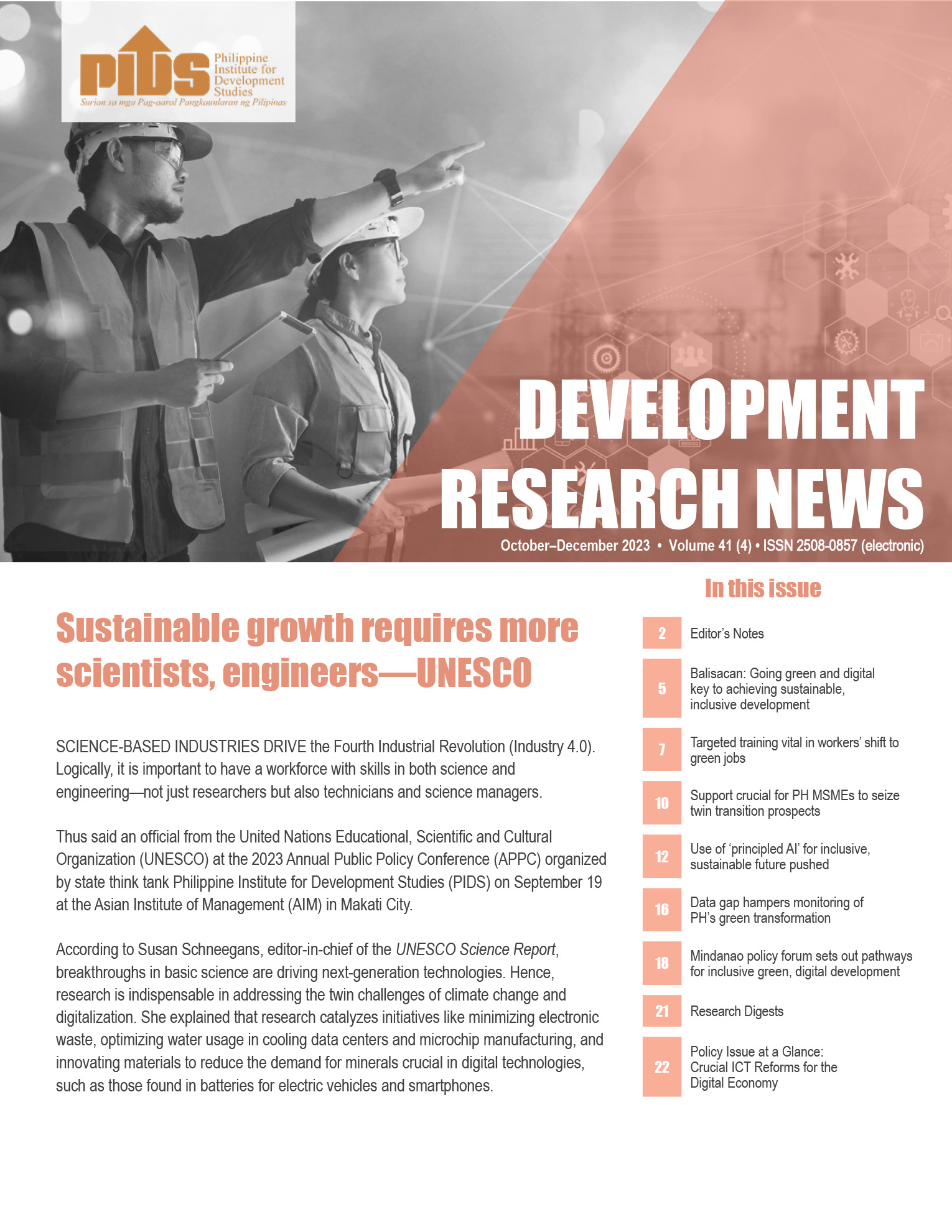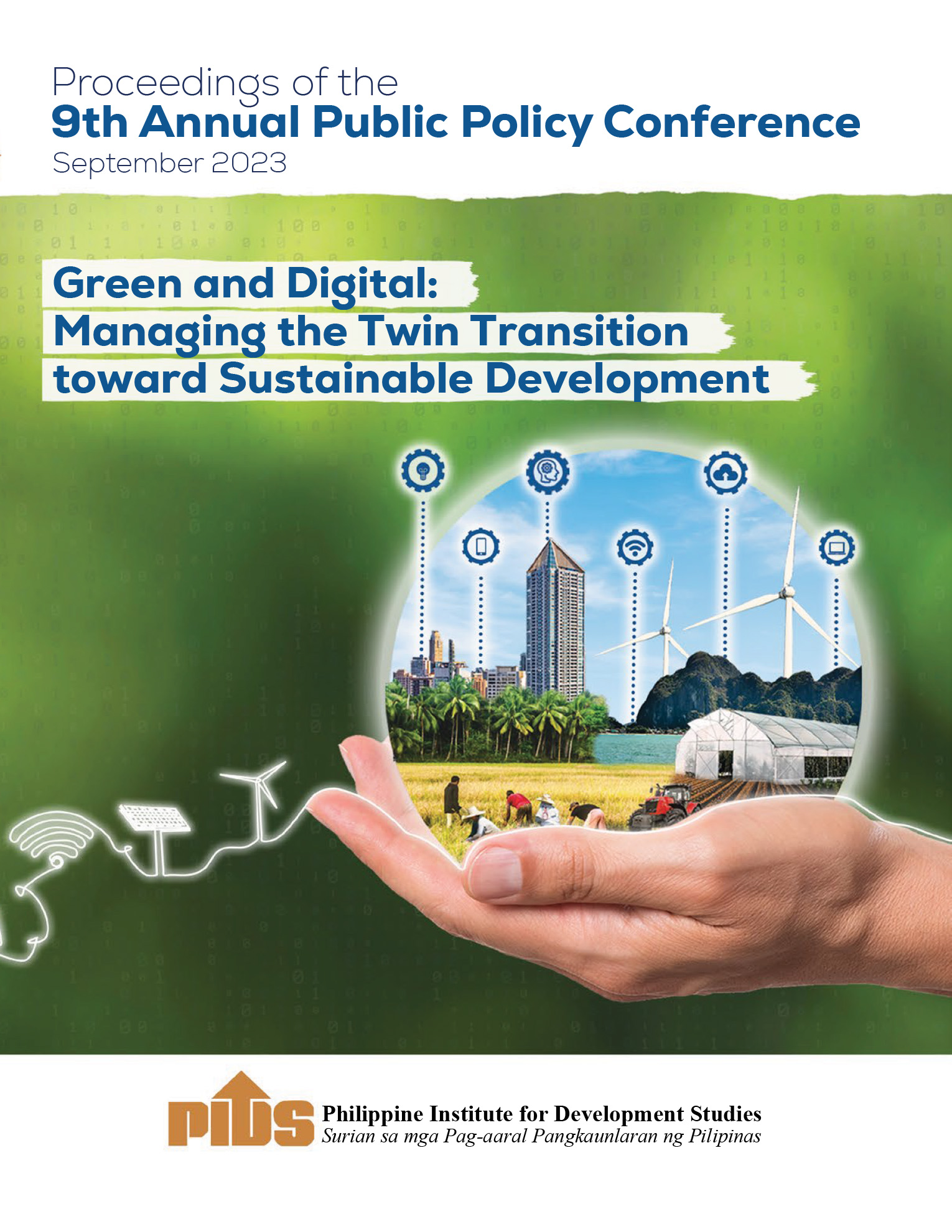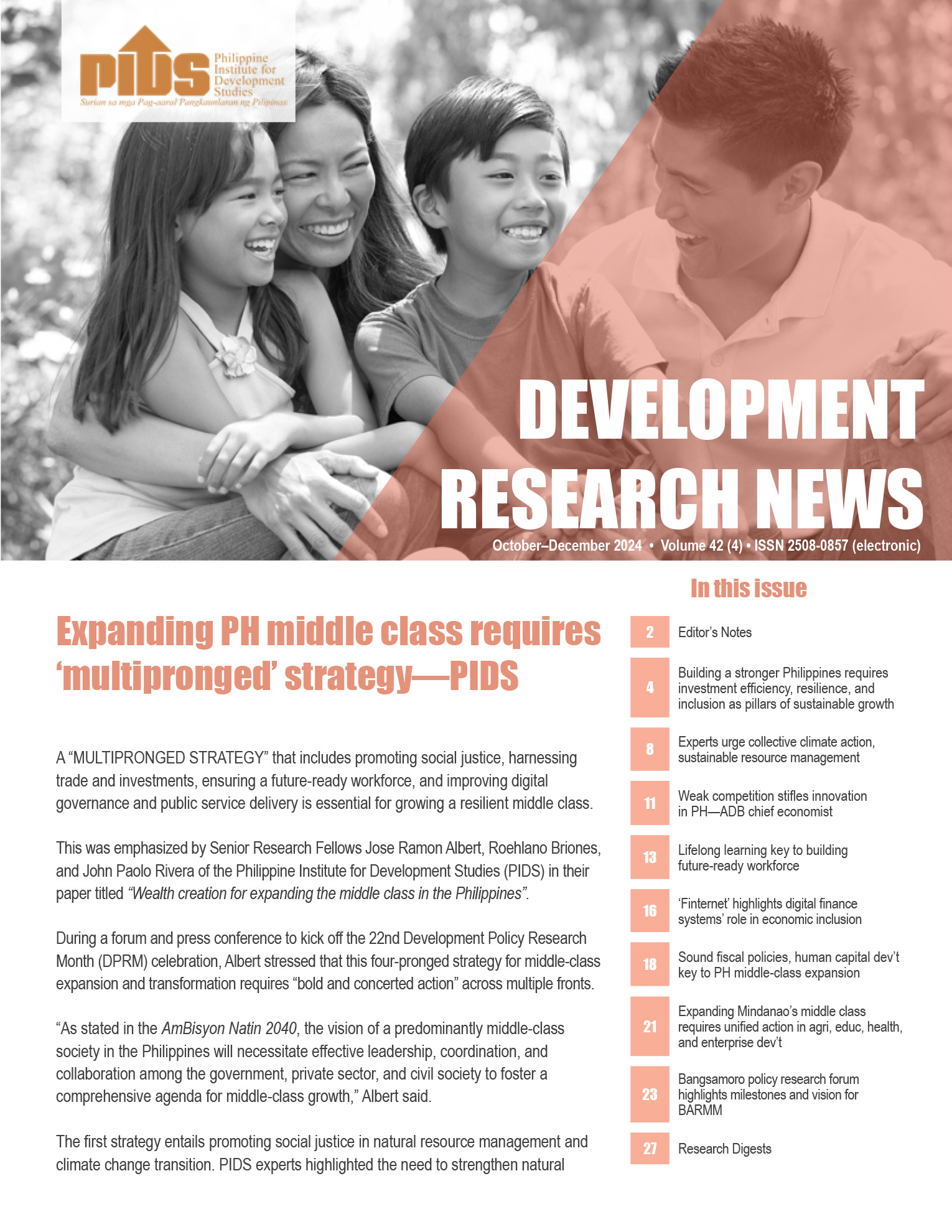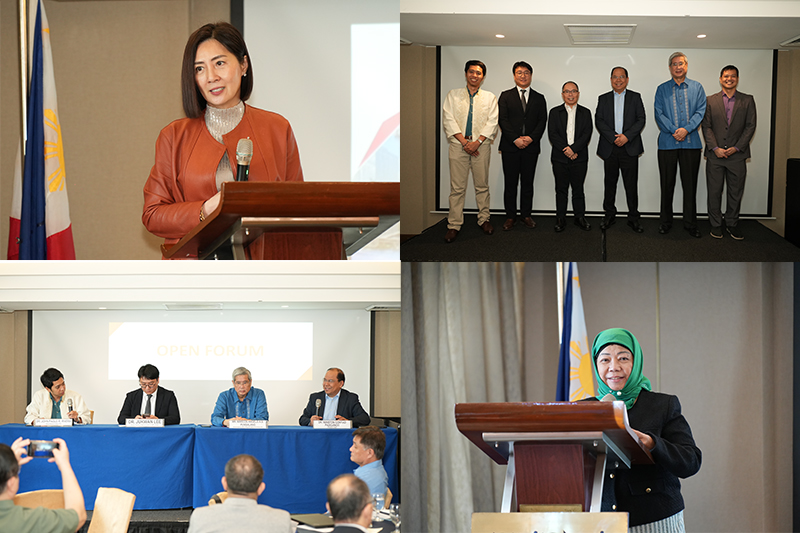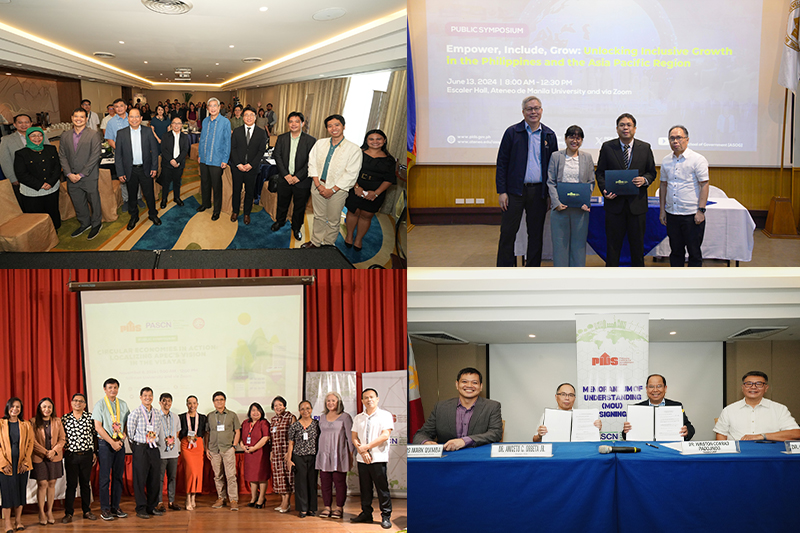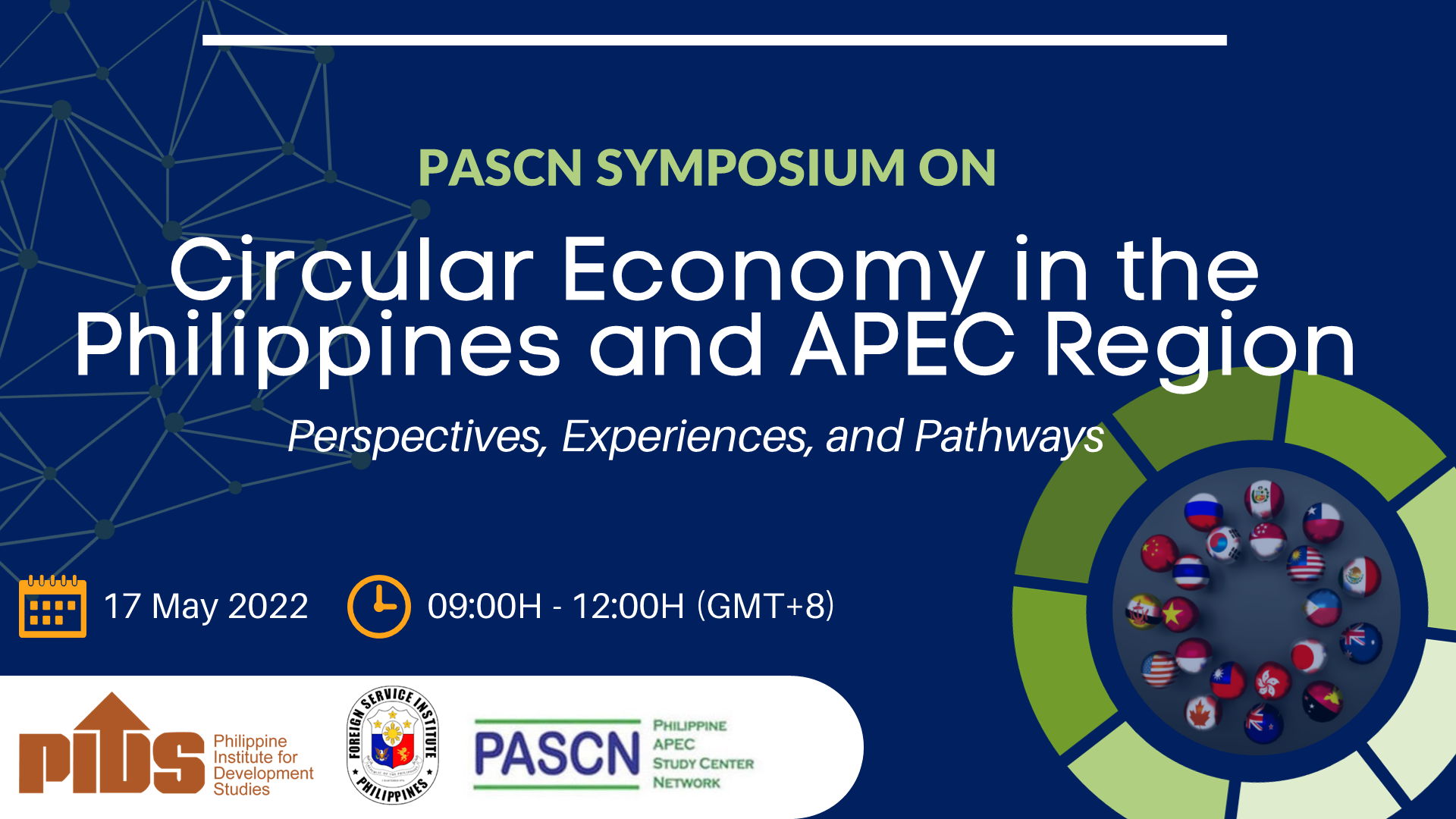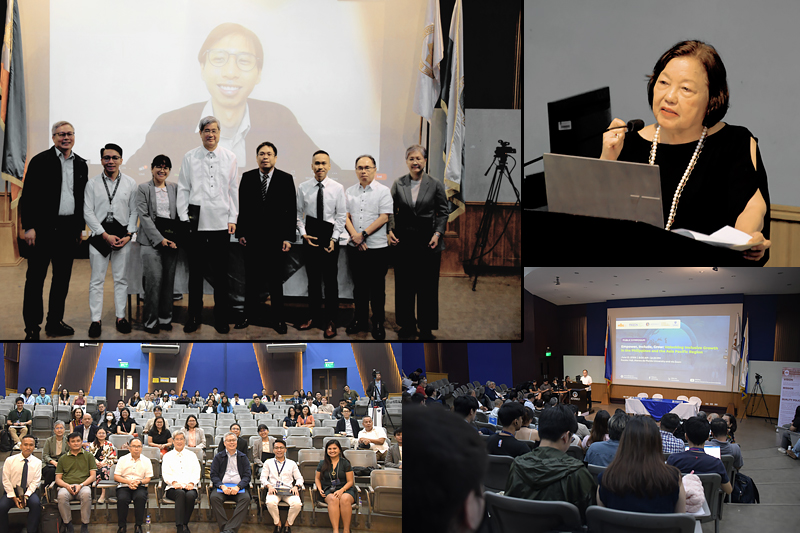
Cooperative approaches among the Asia Pacific Economic Cooperation (APEC) member economies are essential for addressing sustainability and digitalization challenges, and ensuring a resilient and inclusive future across the region.
This consensus was reached during a two-panel symposium organized by the Philippine Institute for Development Studies (PIDS) through its Philippine APEC Study Center Network (PASCN) in collaboration with Ateneo de Manila University (ADMU). The event provided a platform for experts to discuss pressing issues within APEC, specifically on achieving inclusive growth through innovation and digitalization.
In the first panel, Dr. Emma Porio, project leader of the Coastal Cities at Risk project at ADMU, highlighted the escalating impact of climate change in the region. She stressed the need for integrated and anticipatory approaches in local development plans to effectively address environmental challenges and enhance resilience. There must be supportive conditions for transformative climate action through convergent policy practices, resource flows, and integration.
Mr. Gerald Pascua of ADMU’s Economics Department discussed the role of digitalization in economic growth and inclusion. He pointed out the challenges posed by varying regulatory frameworks across APEC economies, noting the increasing dominance of the digital economy, where digital trade now comprises 25 percent of global trade. Heterogeneity of digital regulatory frameworks and infrastructure constraints across economies in the region make it difficult to move data between trading partners, further impeding digital trade. He advocated for technical support aimed at enhancing digital capabilities in developing economies, thus enabling them to fully participate in digital trade initiatives.
The second panel session delved into the challenges and opportunities related to innovation, digitalization, and inclusion within the APEC economies. APEC Secretariat Policy Support Unit Researcher Mr. Eldo Malba Simanjuntak highlighted the vulnerability of the informal labor sector, and stressed the role of APEC roadmaps in establishing a structured approach to address informal labor challenges and the drive torward digitalization.
Simanjuntak underscored the importance of bridging digital divides, enhancing digital literacy, raising awareness, and implementing regulations, given the transformative impact of digitalization on work and trade in the Asia-Pacific region.
Meanwhile, PIDS Senior Research Fellow Dr. Ramonette Serafica highlighted the critical role of Information and Communication Technology (ICT) regulations in enhancing services competitiveness and reducing market barriers.
“While recent regulatory reforms have been introduced in the country’s ICT sector, there still exist regulatory hurdles that need to be addressed,” explained Serafica. These obstacles include artificial and natural barriers to market entry and expansion, necessitating a national policy to optimize spectrum usage. She also stressed the significance of research networks and resources available through APEC in systematically tackling these issues.
Despite strides in digital penetration, Serafica noted the significant differences in household broadband access across regions. The symposium concluded with a call to leverage APEC’s resources and collaborative networks to address the issues systematically.
View photos of the symposium here.
Watch the recording of the public symposium at https://bit.ly/pidslive061324. ###


